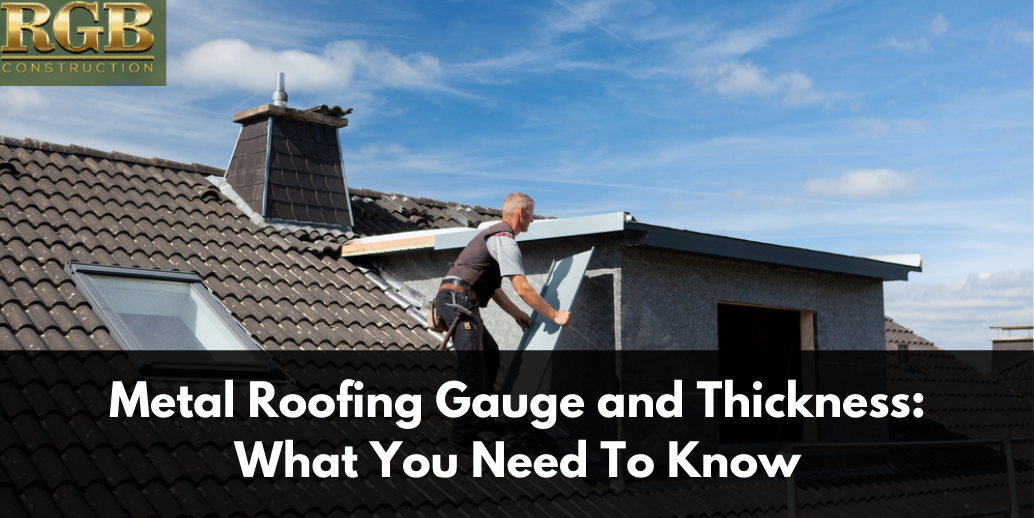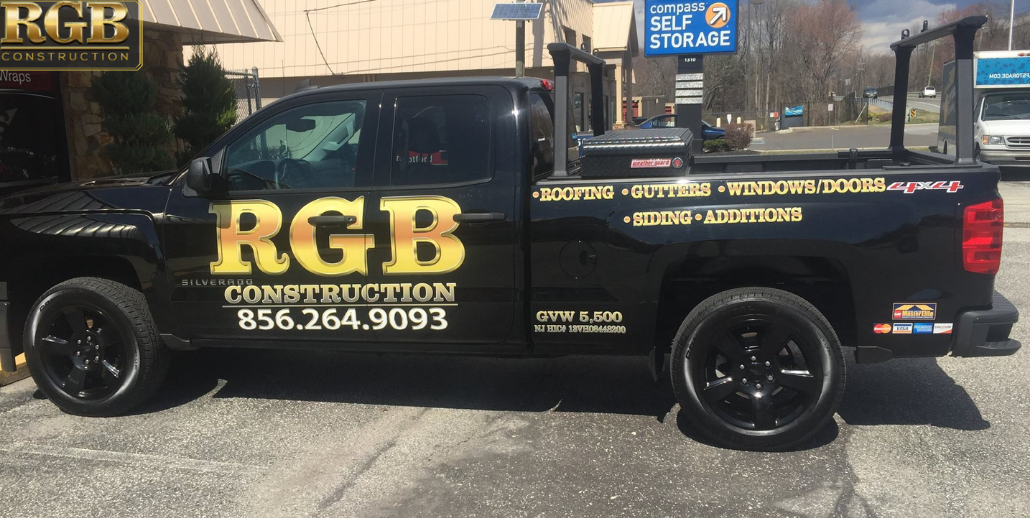Once you decide to replace or install your metal roofing, you must choose its gauge. Metal gauge refers to the thickness of the panel. You might think there’s only one type of gauge, but there are several options. Let’s look at everything you need to know about the thickness of metal roofs.
Gauge Is Important For A Metal Roof
In the United States, manufacturers use the term “gauge” to explain the thickness of the metal panel. These gauges vary, with 22-gauge as the thickest to 29-gauge at the end of the scale. You need to understand the thickness/gauge of the metal roof to choose the best option for your home.
With metal roofing gauges, thicker ones will have a higher price tag. Some homeowners believe that thicker gauges are better, but a few types of homes are more suited for thinner gauges. Here are some of the various gauges with their advantages and disadvantages.
22-Gauge
As you already know, a 22-gauge is the thickest option. With that, you add more protection for your home or business. Plus, this option is very durable against severe weather and high winds. With that, 22-gauge metal roofing panels are the most expensive option on the market.
24-Gauge
Another great choice is the 24-gauge. Like 22, this metal is resistant to all types of extreme weather, and it will maintain a beautiful appearance for years to come. It is also another expensive option.
26-Gauge
This type of metal sheeting is the industry standard for most commercial and residential applications. It is less expensive than 22 and 24, but it is more structurally sound than 29. However, since it is thinner, 26-gauge is not a good choice for those who live in an area with high winds.
29-Gauge
Finally, let’s look at the 29-gauge. It has the minimum thickness for your metal roof, but it is also the least expensive option. You will often find 29 on residential roofs instead of those commercial installations. A 29-gauge is not a durable option for those buildings in areas with extreme weather. If you have periods of powerful storms and heavy winds, you might want to select another option.
Should You Choose The Thicker Panel?
Thicker panels are stronger than thinner materials. However, you might not need this extra strength for your commercial or residential roof. Choosing the best thickness of the metal will depend on the location of the building, the construction type, and your preference.
If you have a pole barn or post-frame building, you should think about a thicker panel. Warehouses and garages are great candidates for thicker metal panels. With these structures, the post frames do
not have structural sheathing. As a result, the roof panels will have to span between the supporting trusses. Those thicker-gauge panels do add support to those areas.
Choosing A Thinner Panel For Your Roof
There is a layer of sheathing or plywood covering a weather-resistant barrier in many homes. The metal panels are attached to the sheathing to prevent moisture leaks. These panels do not have to support the structure of the roof. For that reason, a 29-gauge is adequate in those situations. However, those who live in an area with harsh weather conditions might want to reconsider these lighter options. Hail storms and heavy winds can cause significant damage to thinner metal panels.
Find The Right Option For You
Choosing the best thickness for your home can be complicated. Before you choose any type of metal roofing materials for your home, make sure to speak to a professional. An experienced roofer will help you find the best choice for your building and budget. If you still have a few concerns, here are a couple of answers to those commonly asked questions.
What Gauge To Choose For A Residential Home?
While this answer will depend on your location, many homes in the United States use 29-gauge panels for their metal roofs. Since they are the thinnest panels, they also tend to be the least expensive option for many people. Most houses do not need thicker panels unless the structure is located in a hail-prone area. A 29-gauge metal is typically the best choice for many residential roofs.
How To Select The Best Metal Gauge?
Once again, the gauge of your metal roof will depend on your needs and budget. The area’s climate, your building’s structure, and other factors will play a role in the decision to select a certain metal thickness. If you are still uncertain about the best option for your roof, reach out to a skilled roofing company. These experts have experience working with metal roofs. They know the pros and cons of these gauges. You can get an expert opinion to help make a decision.
How Do You Measure Sheet Metal Thickness?
If you want to find the sheet metal’s thickness, you can use a basic measuring tape to convert a few figures. For the most accurate measurement, take the tape measure to find the metal sheet’s thickness in millimeters. After that, multiply that number by 0.0393. For example, if you had an original measurement of 40 millimeters, then the metal thickness would be 1.5748 inches.
Once you know the basics of metal panel thickness, you can find the right gauge to install on your roof. Some panels are a better option than others. You need to determine your needs and find a selection that can fit into your budget.
Get Started On Your Next Metal Roofing Project
With any roofing project, you will need some experienced help. These professionals can assist you with the selection process. At RGB Construction, we have decades of experience with roofs, including those metal ones. Our technicians will help demystify those thickness options so that you get the best one for your project.
Are you looking for roofing companies in Delaware? Choose the best one! We are a veteran-owned business determined to provide all our customers with high-quality workmanship and exceptional customer service. Schedule your consultation with RGB Construction by calling 856-264-9093.









